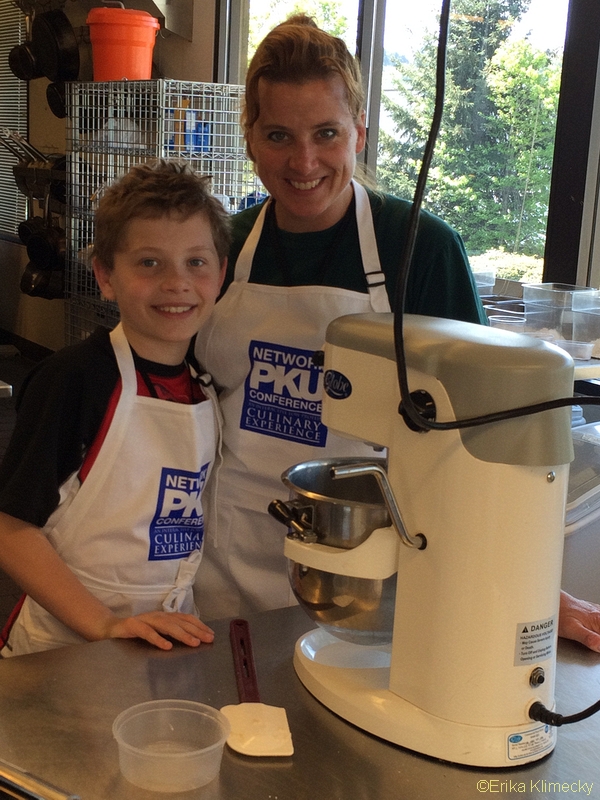Active Mind, Creative Spirit
Cooking School
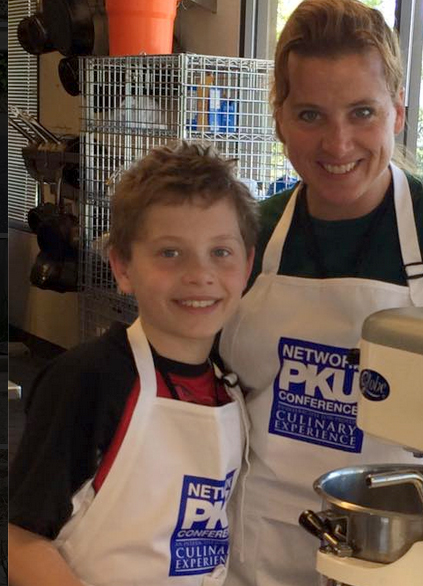
One of the common threads for PKU kids (and adults) is that they play down the emphasis that our society places on food. Think about it – if your meal is restricted every day such that most things that are offered aren’t viable options for you, you spend less time being absorbed with that topic at all. I think of it as a coping necessity. You don’t regularly go play in a field of daisies if you are allergic to them, even if everyone else is out there. As fun as it would be, it’s not the reality you can easily live with. So imagine my surprise when I realized how much my little guy with PKU enjoys being in the kitchen, helping me cook. We make dinner together, and bake cookies together, we figure out what goes on a sandwich. He slices the fruit or peels the carrots, but will also ask to crack the eggs or take the meat from its package (both things he can’t eat). This struck me as strange, since it seems a bit like an amputee who designs shoes: how do you?… and then how can you want to? But he enjoys the creativity and the mixing and everything that goes into the process. It often doesn’t matter at all if he can’t eat it. So I involve him when I can. Enter culinary experts.
Le Cordon Bleu, the acclaimed cooking school, hosted our entire group of PKU families for an afternoon of cooking! Three master chefs, teaching chefs, and assistant chefs led us through recipes that were all acceptable for the PKU diet. As you might expect, the creativity in their solutions to the PKU diet were wonderfully refreshing. I spent the first two years of my son’s life scouring lists and committing foods and protein numbers to memory. I consider it my nutrition-degree-by-fire. Those two years of knowledge have carried me to most of the recipes that I make for him regularly. I have hundreds of items in my head and their respective protein and phe amounts per serving. I use that list to make every food decision for him. Having pro chefs and master chefs run through this process was incredibly refreshing. To have someone else do my homework, look through new foods, and make familiar foods into new epicurean delights. They had done their homework and prepared an amazing, creative menu.
So here’s some of it.
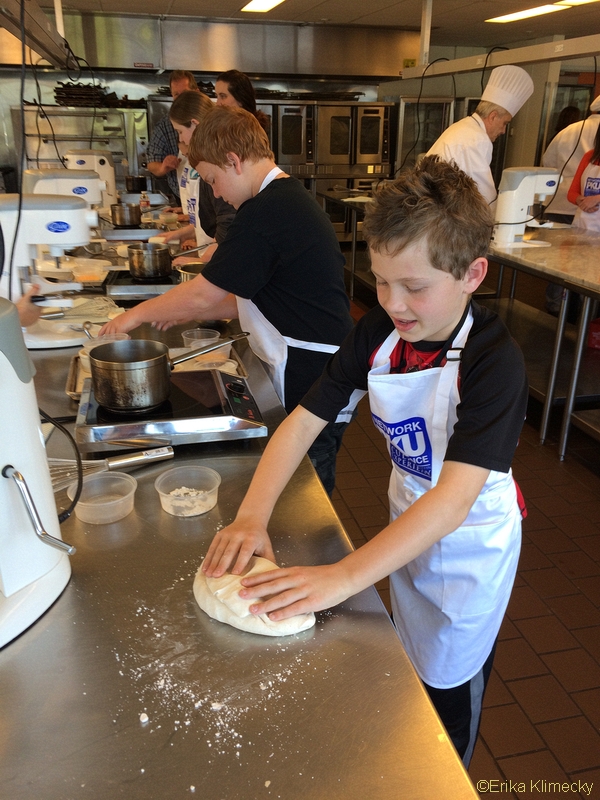
Making pizza dough that he can eat!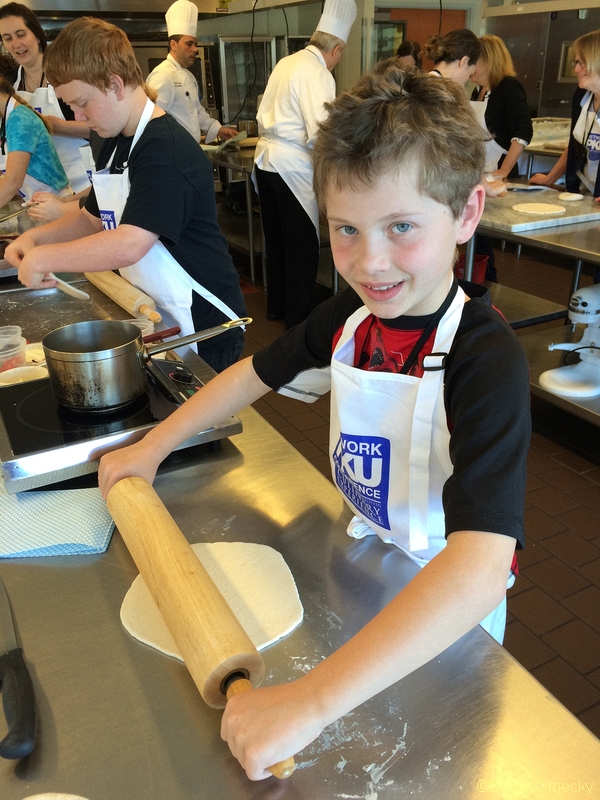
Rolling pins are so fun!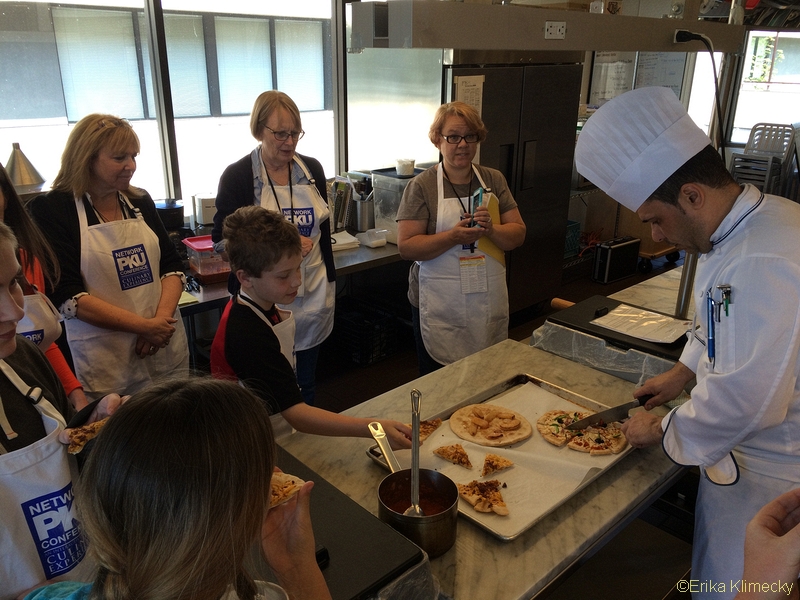
Waiting to taste…
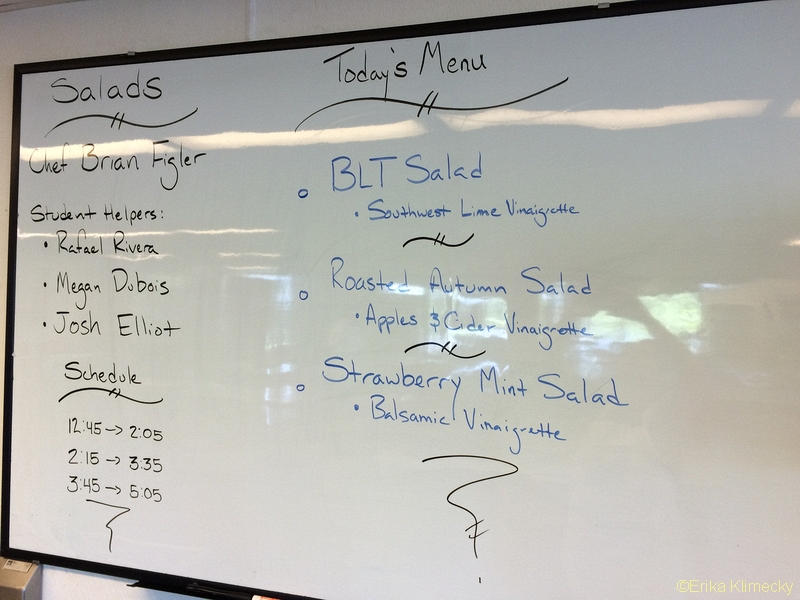
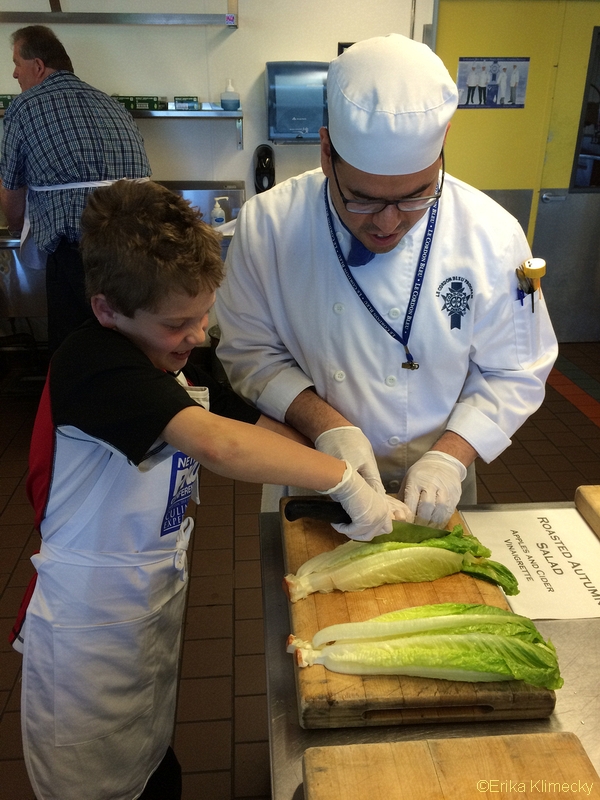
He loved using the giant chef’s knife
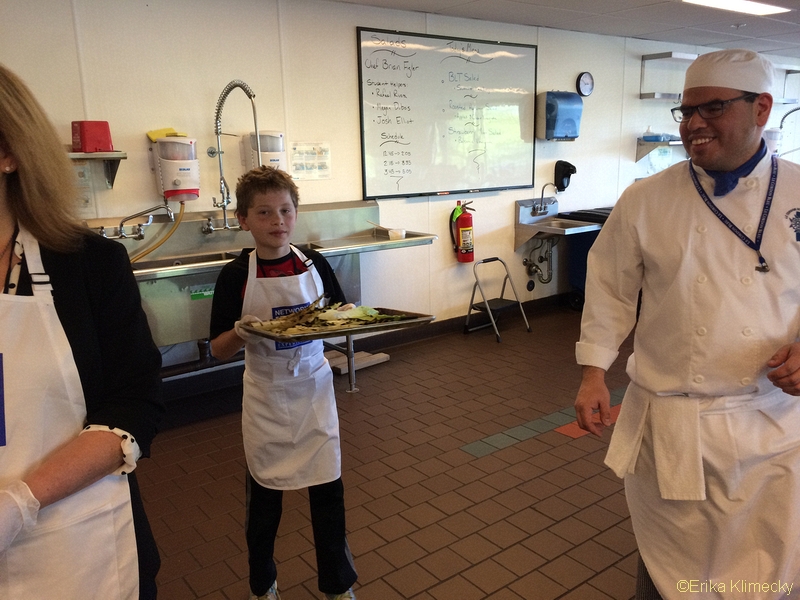
And roasting romaine lettuce (what?! – it’s pretty good!)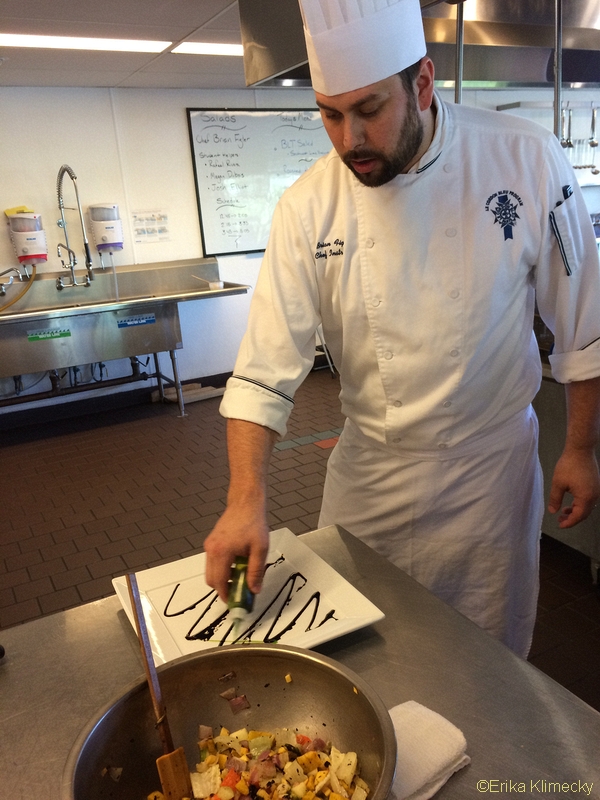
Presentation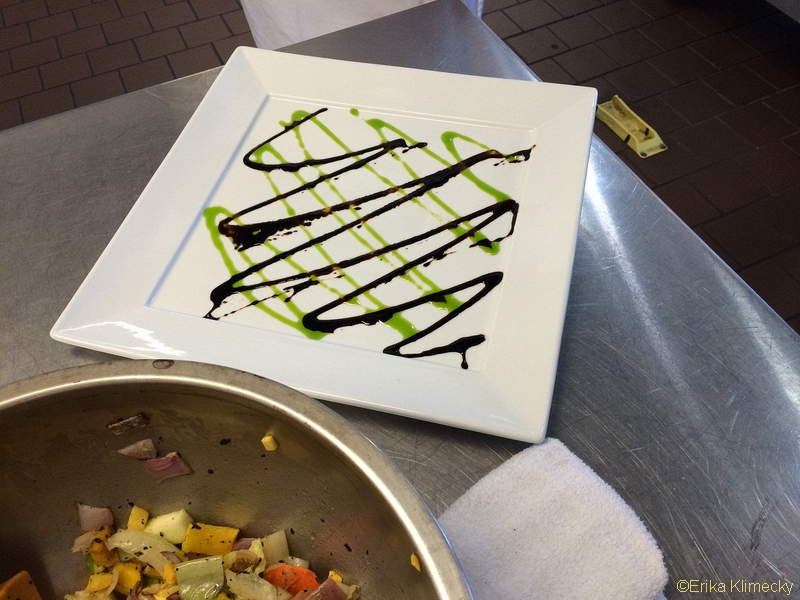
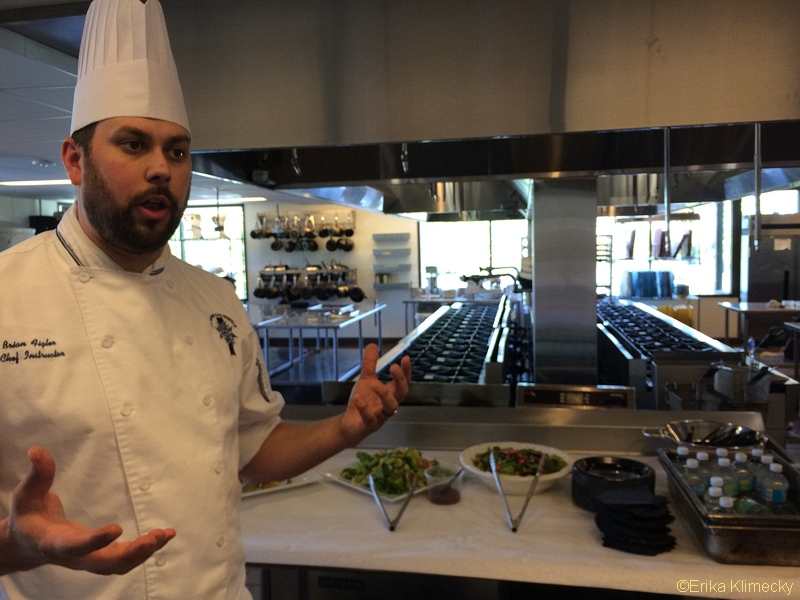
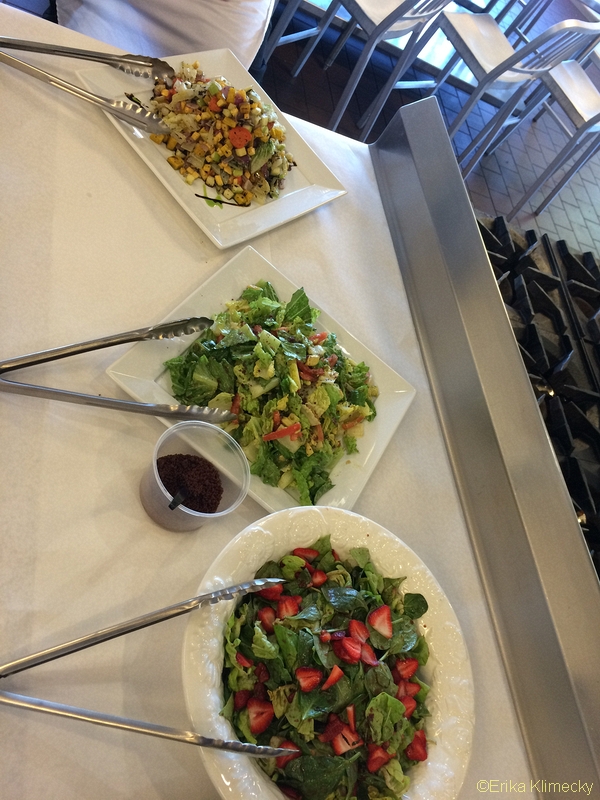
Three amazing main course salads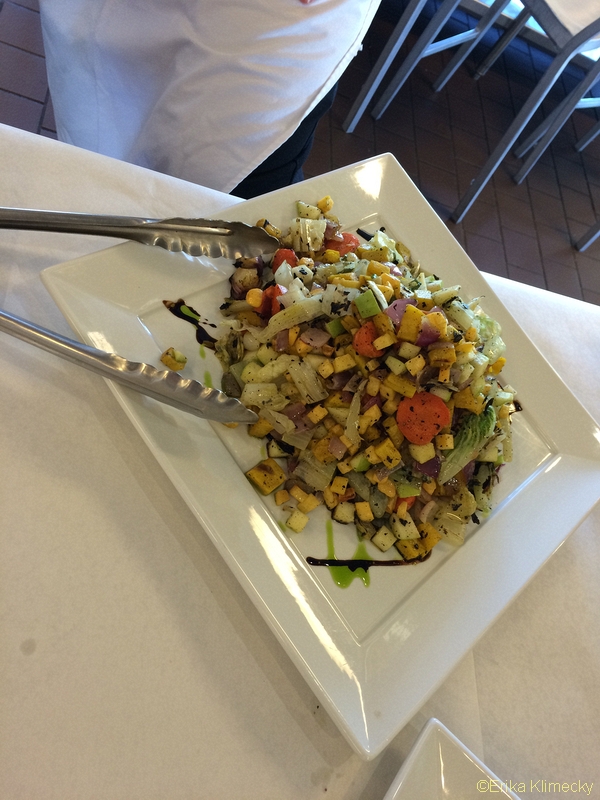
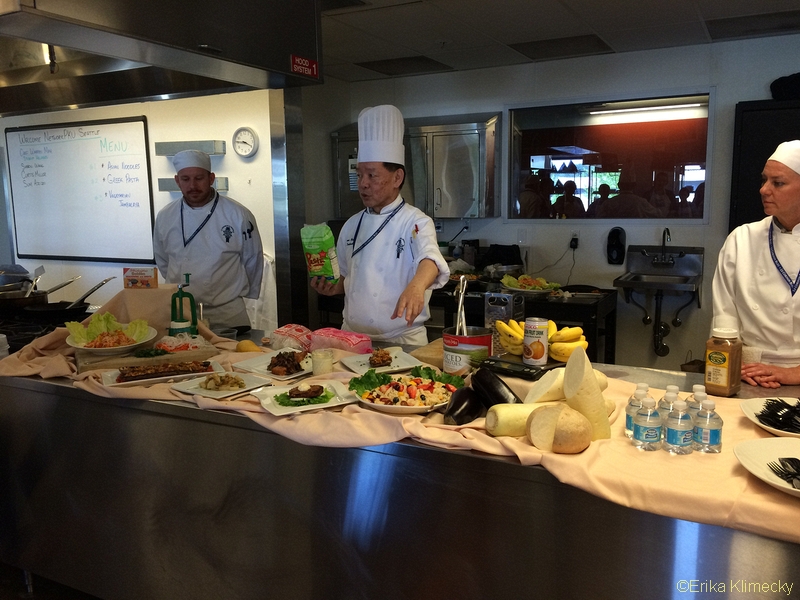
This chef made me cry. He’s been teaching students in standard culinary school for years and I could tell how much he enjoyed the PKU food challenge. He was truly impassioned by the challenge of finding a food solution for these kids. I suppose it’s like taking brushes away from the painter; he will still create, but the format changes, the rules change, but the methods and creativity shine through just the same. So he showed us amazing ways to make low-protein burgers and stirfry dishes. He showed unique ways of using cellophane noodles and low-protein rice. In the middle, occasionally, like he does when teaching regular students, he offered a substitution, and then paused, remembering the restriction. “Does this have too much phe? (Phenylalanine, what we call phe, or “fee” is the component of protein that is counted for PKU folks, the way sugars are for diabetics.) And we, the parents of PKU kids, could all tell him without a pause, yes, or no. It’s in the mental catalog. Then he would offer another substitution and wait to see if that was a better choice. “No, but you could use A, B, or C.” we’d occasionally offer. He’d think about it, then say something like, “Ok, that would work, but that one doesn’t have the body or the texture that this option does. Let’s see what we can figure out.” I watched the artist at work, struggling just enough with the tools he’d been given, to find a viable solution to the problem. Those few moments filled me up and made me realize that what I create every day in the kitchen is pretty magic. That the knowledge I have absorbed from this method of feeding my child is not inconsequential, and not an easy set of parameters to work with.
On our way out I thanked this chef for his insights and suggestions for new foods for our kids. “Oh, no, thank you all,” he said, “you have taught us all so much. This is a very challenging menu and I very much appreciate what it takes. Thank you for showing us for one day, the things you work with everyday of your life.” It’s rare to find that level of passion and gratitude, so I spent a moment soaking it in before I wiped my tears.
